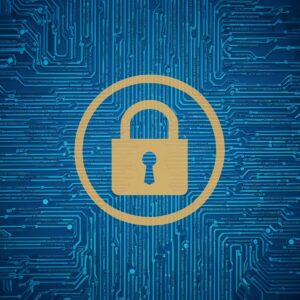The Rise of the Network Hacker: How Cybercriminals are Exploiting Vulnerabilities
Cybercriminals leverage their technical expertise to gain unauthorized access to computer networks, often with malicious intentions. Their objectives encompass various complexities, from financial gain to ideological aspirations. Numerous hackers are driven by the allure of monetary gain, aiming to steal valuable data like credit card information, personal identities, or intellectual property, which can be sold for profit on illicit online marketplaces. Understanding these motivations is not only important, but it is crucial for effective cybersecurity.
Specific hackers are motivated by a desire for power and control, finding satisfaction in infiltrating networks and showcasing their ability to manipulate systems. Some individuals find motivation in their ideological or political beliefs, directing their attention towards particular organizations or individuals whose actions they strongly disagree with. They use this to express their views or further their cause. The thrill and intellectual stimulation of circumventing security measures can serve as strong incentives for hackers.
A comprehensive understanding of the different motivations behind hacking is crucial in developing successful cybersecurity strategies. When implemented correctly, these tactics can empower organizations and individuals to combat hacking and safeguard their networks effectively.
Gaining insight into the motivations driving hacking operations can help organizations and individuals proactively prepare for potential threats and develop more robust cyber defence strategies.
Key Points
- Cybercriminals are motivated by various factors, such as financial gain, political motives, and personal satisfaction, which drive them to exploit network vulnerabilities.
- Cybercriminals focus on identifying and exploiting network vulnerabilities using tactics such as phishing, social engineering, and exploiting software weaknesses.
- Over time, cyber attacks have transformed from simple malware to intricate network breaches, encompassing ransomware and advanced persistent threats.
- Network hacking can have serious consequences, including financial loss, damage to reputation, and potential legal ramifications.
- You can effectively prevent and mitigate cyber-attacks by implementing robust passwords, regularly updating software, and educating users about cybersecurity best practices.
 Identifying Vulnerabilities: How Cybercriminals Target and Exploit Weaknesses in Networks
Identifying Vulnerabilities: How Cybercriminals Target and Exploit Weaknesses in Networks
Malware: A Widespread Menace
One common approach involves utilizing malware, such as viruses, worms, trojans, and ransomware. Malware often enters systems through deceptive emails, harmful websites, or corrupted files. Once inside a network, it can cause serious harm by stealing data, disrupting operations, or holding computers hostage.
Social Engineering: Mastering the Art of Manipulating Human Psychology
Cybercriminals often resort to social engineering, a deceptive technique that manipulates individuals into revealing sensitive information or engaging in actions that put network security at risk. By leveraging human psychology to bypass technical defences, various strategies like pretexting, baiting, or tailgating can be employed to achieve this objective.
Understanding software vulnerabilities and brute force attacks
Network hackers can exploit software vulnerabilities to gain unauthorized access to systems. They often focus on outdated or unpatched software with known security vulnerabilities, which can be exploited to install malicious software, steal data, or gain computer control. In addition, cybercriminals often use brute force attacks to exploit weaknesses in computer networks. This involves methodically testing different login and password combinations until the correct credentials are found, enabling the hacker to gain access to the network. Having a solid grasp of the various tactics employed by cybercriminals to pinpoint and exploit network vulnerabilities empowers organizations and individuals to fortify their defences and mitigate potential risks proactively.
The Evolution of Cyber Attacks: From Basic Malware to Sophisticated Network Breaches
The cyber attack landscape has significantly transformed, shifting from primary malware infections to advanced network breaches that can potentially cause extensive harm. In the past, hackers predominantly used simple viruses and worms to target networks and create havoc. These initial malware versions were easily detectable and removable, laying the foundation for the emergence of more advanced cyber threats in the years to come.
We must remain vigilant as cybercriminals have become more sophisticated with technological advancements. Incidents involving advanced persistent threats (APTs) are on the rise, with their ability to manoeuvre and target with precision, often eluding detection for extended periods. In recent years, there has been a significant increase in thieves’ use of ransomware. This malicious software encrypts data and then demands a ransom to decrypt it. By staying alert and ready, we can effectively combat these risks.
As cyber-attacks have evolved, zero-day exploits have become increasingly common. These exploits specifically target vulnerabilities in software that have not yet been discovered or patched. These exploits can be highly advantageous for hackers as they enable attackers to take advantage of vulnerabilities before they are identified and resolved by software developers. In addition, the increasing prevalence of cyber attacks sponsored by nation-states has further complicated the cybersecurity landscape. Governments use their vast resources to carry out global cyber espionage and sabotage operations.
In today’s rapidly changing digital landscape, it is of utmost importance for organizations and individuals to remain vigilant and well-informed about the ever-evolving cyber threats. By staying updated and adapting security measures accordingly, one can effectively safeguard against increasingly sophisticated attacks. With a proactive approach, we can protect our systems and data from potential threats, giving us control over the situation.
 The Impact of Network Hacking: How Cybercriminals Compromise Your Computer and Data
The Impact of Network Hacking: How Cybercriminals Compromise Your Computer and Data
Network hacking can cause significant harm to both individuals and organizations. Once hackers gain unauthorized access to a computer system or network, they can retrieve sensitive information, including bank records, trade secrets, intellectual property, and personal details. Consequently, individuals and organizations may fall prey to identity theft, financial fraud, or harm to their reputations.
In addition, network hacking can potentially disrupt operations and lead to significant downtime for businesses, ultimately reducing productivity and revenue. Under certain circumstances, cyber attacks can lead to losing or destroying vital data, causing significant long-term consequences for the individuals or organizations impacted. Gaining unauthorized access to a computer or network could also lead to the installation of additional software or backdoors, enabling hackers to maintain persistent control and carry out their malicious activities without detection.
This can exacerbate the consequences of a cyber attack and hinder the victims’ recovery process. In addition, network hacking has the potential to erode trust and confidence in digital systems and technology. This can lead to losing faith in online services and hesitancy in embracing new digital advancements. Network hacking has a wide-ranging impact, causing significant consequences for individuals, corporations, and society.
Protecting Your Network: Steps to Prevent and Mitigate Cyber Attacks
Ensuring the security of your network requires a comprehensive approach that encompasses both technical measures and user education. Regularly updating software with the latest security patches and keeping it up to date is crucial in preventing computer breaches. This solution effectively addresses identified vulnerabilities, significantly mitigating the risk of malicious individuals taking advantage of them.
In addition, implementing robust access controls and authentication techniques can effectively safeguard networks and systems from unauthorized access. Implementing strong security measures such as complex passwords, multi-factor authentication, and role-based access controls is essential to restrict powers based on job responsibilities. Businesses must also invest in reliable security tools such as firewalls, antivirus software, and breach detection systems to prevent unauthorized individuals from accessing their networks.
Consistently performing security audits and penetration tests is essential for maintaining the effectiveness of your cybersecurity plan. Through the identification and resolution of vulnerabilities in network defences, we can ensure enhanced security.
Before hackers exploit them, you can significantly reduce the risk of cyberattacks. Furthermore, user education and awareness are essential in this proactive strategy, helping foster an organization’s security culture.
The Role of Cybersecurity: How Organizations and Individuals Can Defend Against Network Hackers
Enhancing Cybersecurity Measures
Establishing well-defined policies and streamlined processes for handling access controls, data protection, incident response, and security awareness training can significantly enhance an organization’s cybersecurity measures. Approaching the task methodically can effectively develop a plan to address potential risks and vulnerabilities.
Ensuring the Protection of Confidential Information
Encryption technologies are essential for safeguarding sensitive data from unauthorized access during transmission or storage. Businesses must regularly conduct risk reviews to identify potential security vulnerabilities and prioritize areas that require attention. This enables organizations to optimize resources and prioritize resolving critical security vulnerabilities within their networks.
Emphasizing the Importance of Personal Accountability in Cybersecurity
Developing strong cybersecurity habits is crucial in safeguarding networks against hackers. It is essential to take certain precautions to protect your online security. This includes using robust passwords, being cautious about sharing personal information online, regularly updating your software, and staying vigilant for potential security threats. By implementing adequate security measures, individuals can create a safer online environment for all users.
The Future of Network Hacking: Emerging Threats and the Importance of Staying Vigilant
With the continuous advancement of technology, the abilities of individuals who engage in unauthorized network access will also progress. As we look ahead to the future of network security, we can expect the emergence of new and advanced threats. These may include AI-powered attacks, quantum computing-driven breaches in cryptography, and vulnerabilities in the Internet of Things (IoT). Addressing these emerging threats will pose significant challenges for cybersecurity professionals, necessitating innovative approaches to mitigate their impact.
In addition, the growing interconnectivity of IoT devices is broadening the scope for hackers to exploit, giving them a more significant opportunity to wreak havoc. As our world becomes increasingly digital, it’s essential to recognize that this also puts critical infrastructure, such as power grids, transportation systems, and hospitals, at a heightened vulnerability to cyber attacks. It is crucial to always stay alert and adapt cybersecurity measures to combat emerging threats effectively.
Governments, industry partners, and cybersecurity experts must work together to develop effective strategies for safeguarding against future network hacking threats. Staying updated on the latest cybersecurity trends and implementing strategic defence measures allows individuals and organizations to prepare effectively for the ever-evolving landscape of network hacking.
References:
WHY IS CYBERSECURITY IMPORTANT FOR BUSINESS? – A&B Business. https://www.abbusiness.com/2023/06/22/why-is-cybersecurity-important-for-business/
What Is A Zero-Day Exploit And Why Are They Dangerous? – Cyber Matters Reviews. https://cybermatters.review/hacking/what-is-a-zero-day-exploit-and-why-are-they-dangerous/
The post How Cybercriminals Exploit Vulnerabilities appeared first on Ezi Digital Agency.
The post How Cybercriminals Take Advantage of Security Holes appeared first on Ai Ninja Toolbox.
The Article How Cybercriminals Take Advantage of Security Holes Was Found On https://limitsofstrategy.com




Your exploration of the motivations behind network hackers really sheds light on the complexity of the cybercriminal landscape. It’s fascinating to consider how their technical prowess can be directed toward such varied objectives—whether for financial profit, ideological expression, or a sheer desire for control.
I completely agree with your insights on the motivations behind network hackers. The cybercriminal landscape is indeed an intricate web of agendas and intentions. It’s interesting to think about how these hackers often reflect broader societal issues, such as income inequality or political disenfranchisement. For some, the act of hacking becomes a form of resistance or protest.
I find your point about hacking as a form of resistance or protest really thought-provoking. It’s fascinating to consider how some individuals navigate their frustrations through these digital channels, especially when traditional avenues for voicing dissent seem closed off or ineffective.
You raised a really interesting point about how hacking becomes an outlet for frustration. It’s wild when you think about it—when people feel unheard, they often turn to technology as a means of expression. In our digital age, that feeling of isolation can be intensified by how corporate interests can silence voices that need to be heard.
You’ve hit on something really interesting there. It’s wild to think how some folks feel like hacking provides an outlet for their frustrations, especially when they feel locked out of the usual channels for change. It’s like a digital version of a protest sign, just way more techy.
You’ve brought up a crucial point about the motivations behind hacking. It’s fascinating to think of hacking not just as a technical act but as a mirror reflecting deeper societal challenges. The notion that some individuals may turn to hacking as a form of resistance is compelling. It highlights how issues like income inequality and political disenfranchisement can really shape people’s choices.
You bring up a really compelling point about how hacking can be seen as a form of protest. It’s wild to think that behind the keyboard, there might be a person who feels powerless or completely marginalized in their own life. When you dig deeper, it’s clear that hacking isn’t just about breaking into systems or stealing data; it can often be a reaction to feeling unheard or neglected by society.
The idea of hacking as a form of protest really does open up a fascinating window into the human experience. It’s intriguing to consider how technology, often seen as a cold, impersonal tool, can also serve as a voice for individuals who feel sidelined. When someone behind a keyboard engages in this way, it’s often an expression of frustration—an outlet for emotions that might not find another platform.
You’ve touched on something really profound with the idea of hacking as a means of protest. It’s almost poetic to think about how individuals, often feeling insignificant in the grand scheme of things, can wield technology to make their voices heard. This intersection of technology and personal expression is fascinating because it reveals our longing for agency in a world that can sometimes feel overwhelmingly controlled.
You’ve brought up some really interesting points. The idea of hacking as a means of protest does carry a certain weight, especially when we consider the historical context of civil disobedience—think about groups like Anonymous or movements like WikiLeaks. They not only challenged established norms but also redefined what activism can look like in the digital age.
You’ve hit on something really important. Hacking as protest definitely reshapes how we think about activism these days. Take Anonymous, for example—they’ve turned online anonymity into a powerful tool for speaking out against injustice. It’s fascinating to see how these groups use technology not just to disrupt but to raise awareness about issues that might otherwise fly under the radar.
It’s really interesting to see how hacking as a form of protest can reveal our individual struggles for agency. It’s true that in a world filled with rules and structure, making a statement—even a digital one—can feel empowering. Each hack, whether big or small, taps into that desire for recognition.
You bring up a really compelling point about how hacking can be seen as a form of protest. It’s fascinating to think about the psychology behind it. Often, those who take the leap into hacking may feel like their voices aren’t being heard in more traditional ways. It makes me think of the protests and social movements that have emerged online, where the digital landscape becomes a battleground for issues like inequality, surveillance, or censorship.
You bring up a compelling point about how hackers can serve as reflections of societal issues. It’s fascinating to consider how their motivations often intertwine with underlying economic and social injustices. For some, it can feel like they’re wielding their skills to challenge systems that perpetuate inequality.
I appreciate your perspective on the motivations driving cybercrime—it reminds me of an article I recently read that outlines practical steps to safeguard our phones from those very threats.
‘How to Protect Your Phone from Hackers in 8 Sensible Steps’
https://writebuff.com/how-to-protect-your-phone-from-hackers-in-8-sensible-steps/.
It’s interesting to think about how the motivations of network hackers can resemble a spectrum rather than a one-size-fits-all mindset. Some of them might see themselves as modern Robin Hoods, battling against systems they perceive as unjust. Others operate purely for personal gain, navigating a gray area where ethics can get blurred.
It’s really interesting how you highlighted the varied objectives of hackers. It does show a sort of duality in the cyber realm—where technical skill can be used for both constructive and destructive purposes. I often think about how this complexity mirrors broader societal issues, like how technology can empower both innovation and crime.
I can totally relate to your thoughts on the duality of hackers and how it reflects larger societal dynamics. It’s intriguing to consider how technology serves as both a tool for progress and a means of exploitation. The fact that a person can use their skills to either create innovative solutions or wreak havoc really emphasizes the moral choices behind the applications of those skills.
You bring up a compelling point about the motivations behind network hackers and how their technical skills can be channeled into various ends. It’s interesting to think about the range of factors that drive individuals in this space. While financial gain is often discussed, there are layers of complexity that warrant deeper consideration.
You bring up a compelling point about the motivations behind network hackers and how their technical skills can be channeled into various ends. It’s interesting to think about the range of factors that drive individuals in this space. The interplay between financial gain, ideology, and personal circumstances creates a complex tapestry that’s often overlooked.
You bring up a compelling point about the motivations behind network hackers and how their technical skills can be channeled into various ends. It’s interesting to think about the range of factors that drive individuals in this space. While financial gain is often discussed, there are layers of complexity that warrant deeper consideration.
I found an insightful piece that explores the intricate motives behind network hackers and how their technical abilities can lead them into the depths of the dark web; it adds a fascinating layer to the conversation we’re having.
‘Delving Into Deep Search’s Hidden Dark Web’
https://writebuff.com/delving-into-deep-searchs-hidden-dark-web/.
It’s great to hear that you found the exploration of network hackers’ motivations interesting. The motivations behind their actions really do paint a complex picture. It’s like peeling back layers of an onion—each layer offers a different perspective on their mindset.
It’s interesting to think about how these motivations overlap and influence one another. For instance, some hackers driven by ideological beliefs may find financial gain as a side benefit, while others pursuing profit might develop a personal stake in the causes they attack. This blending of motivations creates a more intricate cyber landscape than we often acknowledge. Plus, with technology evolving, new opportunities arise for hackers to innovate their methods, which can further blur the lines of their objectives.
The topic you’ve raised about the rise of network hackers and their diverse motivations brings to light a critical aspect of our increasingly digitized society. As someone who has followed the evolution of cybersecurity closely, I find it fascinating—and indeed troubling—how the motivations of cybercriminals have become as complex and varied as any legitimate career path.
You’ve touched on such an important issue. The complexity behind the motivations of cybercriminals really does reflect broader societal trends. It’s interesting to think about how advancements in technology, while hugely beneficial in many ways, have also created new avenues for exploitation.
You’ve raised a thought-provoking point about the dual nature of technology. It’s fascinating how innovations intended to enhance our lives can also provide fertile ground for malicious activities. The same tools that connect us and streamline our tasks can be exploited by those looking for quick gains, often preying on vulnerabilities in our systems or even in our behaviors.
You bring up a crucial point about the complex motivations driving network hackers today. It’s interesting to observe how their interests can range from financial gain to ideological beliefs, and even a sense of fun or challenge. This isn’t just a shift in tactics but a shift in the entire landscape of risks we face as individuals and organizations.
You’ve hit on something really important about our digital landscape. The way cybercriminals operate and their motivations does mirror a lot of legitimate career paths, which is a bit unsettling when you think about it. It’s like there’s a whole ecosystem out there, where some are driven by financial gain, others by political motivations, and then you have the thrill-seekers who just want to test their skills.
I find it fascinating how the motivations of hackers can be so varied and nuanced, often reflecting broader societal issues that go beyond just the technical realm. Like you pointed out, for many, it’s not just about financial gain. I think about the rise of hacktivism, for example. We’ve seen groups like Anonymous really use their skills to push back against governmental actions or corporate greed, almost making their penetrative hacks a form of modern-day protest. It raises questions about ethics in the digital age; can hacking be justified if it aims to highlight social injustices?
You’ve touched on a really important and complex topic. The rise of hacktivism definitely introduces a set of ethical dilemmas that are becoming increasingly relevant as technology permeates every aspect of our lives. When you think about groups like Anonymous, it’s striking how their digital activities can be seen as acts of civil disobedience. They often aim to bring attention to issues like government surveillance, corporate malfeasance, or human rights abuses, and in a way, they’re using the tools of the times much like earlier activists have used protests and other forms of resistance.
You’ve brought up a thought-provoking point about hacktivism and its moral implications. The way groups like Anonymous leverage technology to address societal issues does echo past movements, where activists used the tools of their time—like pamphlets or public forums—to challenge authority.
I recently came across a piece that delves into practical ways to protect our computers from malware, which feels especially relevant as we navigate the intersection of technology and ethics in our digital lives.
‘Safeguarding Your Computer From Malware’
https://writebuff.com/safeguarding-your-computer-from-malware/.
You’ve made some excellent points about hacktivism and how these actions often mirror traditional forms of activism. The ethical dilemmas you mention really do create a fascinating gray area. It’s hard not to feel torn, especially when you consider the motivations behind groups like Anonymous and how their actions aim to shine a light on some significant social issues.
Your exploration of the motivations behind network hackers resonates deeply, especially in a world increasingly reliant on digital infrastructure. It’s fascinating how, for many, hacking serves not just as a means to an end but as a platform for self-expression or ideological protest. This reminds me of the case of Anonymous, a hacking collective that used its skills to champion various social causes—blurring the lines between criminality and activism.